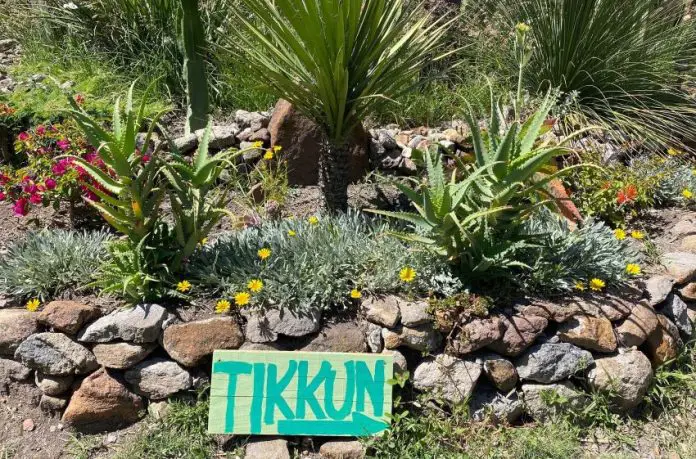In the countryside of San Miguel de Allende, Guanajuato, an ancient Jewish tenet guides a modern mission. The Talmudic concept of ”tikkun olam” — Hebrew for “repairing the world” — is a calling to reconnect our souls and spirits and to engage in social and ecological action to mend the damage inflicted on the world.
With this ideal as their foundation, Tikkun Eco Center is committed to community service for environmental restoration. They empower farming communities by reversing desertification, restoring water and food security and transforming barren areas into abundant, thriving ecosystems.
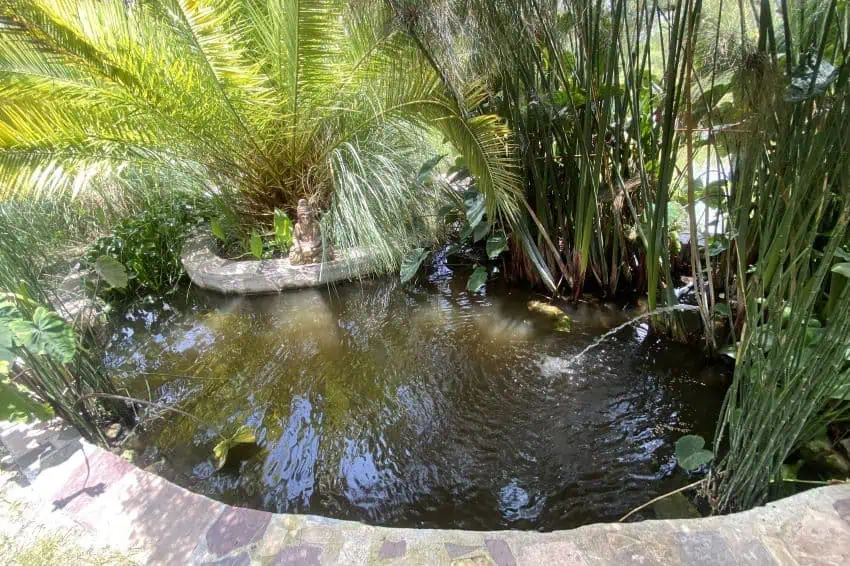
A delightful visit to Tikkun Eco Center for this article was made even more special by the company and guidance of environment enthusiasts Herb and Sally Silver, dear friends of mine. As we drove into the center, the sharp contrast in the landscape was breathtaking. The arid, scrubby terrain we had been navigating suddenly enveloped us in a lush jungle full of organic food, otherwise known as a “food forest.”
Meet the visionaries
We were warmly welcomed by Ben Ptashnik, Victoria Collier and Rebeca Ayala, Tikkun’s directors. Ptashnik was born in Israel, where he was influenced by his early experiences in cooperative agricultural life on a kibbutz. Later, as a Vermont state senator, he championed legislation promoting renewable energy and sustainable agriculture.
Collier, who runs project development and agriculture at Tikkun, deepened her ecological commitment in the early 2000s as the director of Tierra Lucero, a non-profit permaculture center in Taos, New Mexico, addressing the deep food insecurity of rural communities.
Born in Mexico City, Rebeca’s environmental advocacy began at 18 as a teacher in a Zapotec community in Oaxaca. With a degree in Environmental Engineering and a Green MBA, she worked with the Attorney General for Environmental Protection (Profepa) and the Dow Chemical Company, developing efficient models for water treatment plants.
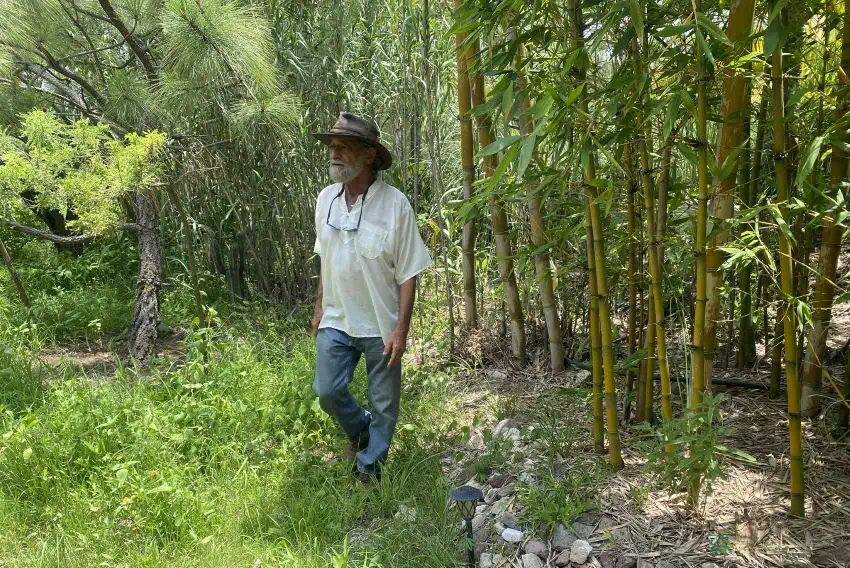
A model for sustainable living
Ptashnik and Collier founded Tikkun Eco Center in 2008 in the rural village of San José de Gracia. The center’s 7.5 acres were initially a barren landscape dotted with only a few scattered trees, shrubs and cacti. Like many rural households in Mexico, Tikkun had no reliable access to water, public services or electricity.
With the goal of helping communities adapt to the challenges of the climate crisis, Tikkun is committed to reforestation, watershed restoration and ecological education. The center’s mission is to foster a more resilient and abundant world, where nature and people thrive together. By promoting sustainable practices and restoring vital ecosystems, Tikkun is not just responding to today’s urgent needs but also paving the way for a healthier, more sustainable future.
The lay of the land
The staff at Tikkun created this off-grid farm by constructing three adobe living and working sites that run entirely on solar and wind energy. To ensure a self-sufficient water supply, they set up a system of rainwater capture. The more than 2,000 trees, vines, shrubs, flowers and cacti they’ve planted contribute to a flourishing food forest and orchard. Their organic gardens, spanning over 2 acres, are supported by extensive earthworks and a site-wide drip irrigation system that keeps everything lush and green.
Adding to this vibrant ecosystem are eight interlocking ponds that house tilapia, koi and goldfish; these nutrient-rich waters are later used to irrigate the land. Onsite beehives pollinate Tikkun’s plants. The center’s two plow horses ensure that the soil is tilled gently, without the disruption caused by tractors. Additionally, their permaculture center proudly maintains a vast collection of heirloom seeds and enriches the soil by producing worm compost.
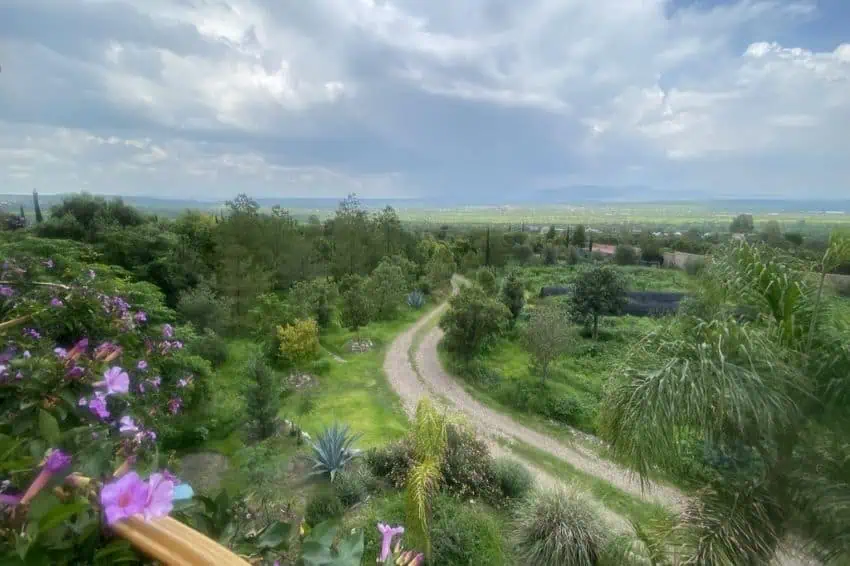
This flourishing land attracted new species, not all of them welcome. For years, the center, like much of the entire region, battled a ruthless plague of grasshoppers. After trying numerous natural remedies without success, they found a solution in chickens. With the help of three roosters donated by a neighbor, Tikkun’s chicken population grew rapidly. Happy to feast on the all-you-can-eat grasshopper buffet, these chickens played a crucial role in saving the farm while also providing food and fertilizer.
Cultivating connection as a community hub
Tikkun has grown into a vibrant community hub dedicated to education, activism and ecological restoration. The center provides a variety of programs, workshops and retreats designed to cultivate a strong connection to the earth and a sense of environmental stewardship. They focus on advancing social and environmental justice by promoting equitable access to resources and empowering younger generations to take an active role in repairing and nurturing their land.
In 2020, as the COVID-19 pandemic took a heavy toll on the local economy, Tikkun Eco Center expanded its farm to approximately 5 acres. Aimed at aiding local families in need, they distributed their organic crop of fruits and vegetables to families in the surrounding villages.
In 2021, the center’s community food distribution continued, providing around 4,200 meals per month to people in need. By 2022, Tikkun shifted its focus to restoring the village water reservoir, a project designed to strengthen local water and food resilience so communities could grow their own food. Tikkun Eco Center remains prepared to offer their farm as a food bank in the event of future crises.
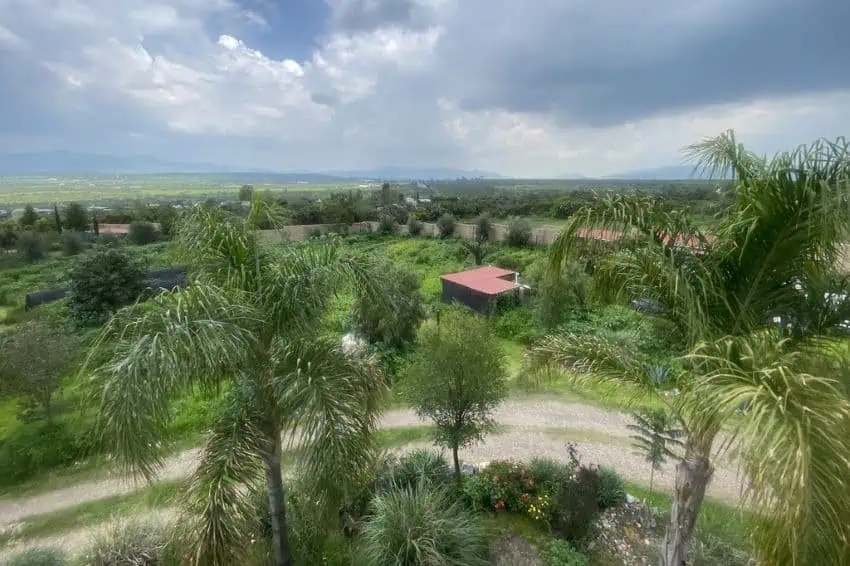
Leading by example in a global restoration movement
The team at Tikkun believes that the best path forward is to learn from the climate, the water cycle, the soil-food web and vast fungal networks to view the planet as a single, living organism. Tikkun’s restoration practices have demonstrated that the Earth has an incredible capacity to heal.
Their work is part of a growing global movement focused on ecological restoration and climate resilience. While communities in places like Zimbabwe, China and India are making significant strides with expansive restoration projects, the Tikkun team believes that Mexico also needs to embrace these efforts on a large scale. Tikkun is leading by example, showing how earth-healing projects can be successfully implemented to reverse biodiversity loss, water shortages and land degradation.
If you’re inspired by Tikkun Eco Center, you can support their ongoing efforts and get involved by donating or becoming a member. Tours are available to experience their gorgeous oasis firsthand, as are volunteering opportunities. To contribute, visit the center’s website.
Sandra Gancz Kahan is a Mexican writer and translator based in San Miguel de Allende who specializes in mental health and humanitarian aid. She believes in the power of language to foster compassion and understanding across cultures. She can be reached at: sandragancz@gmail.com
